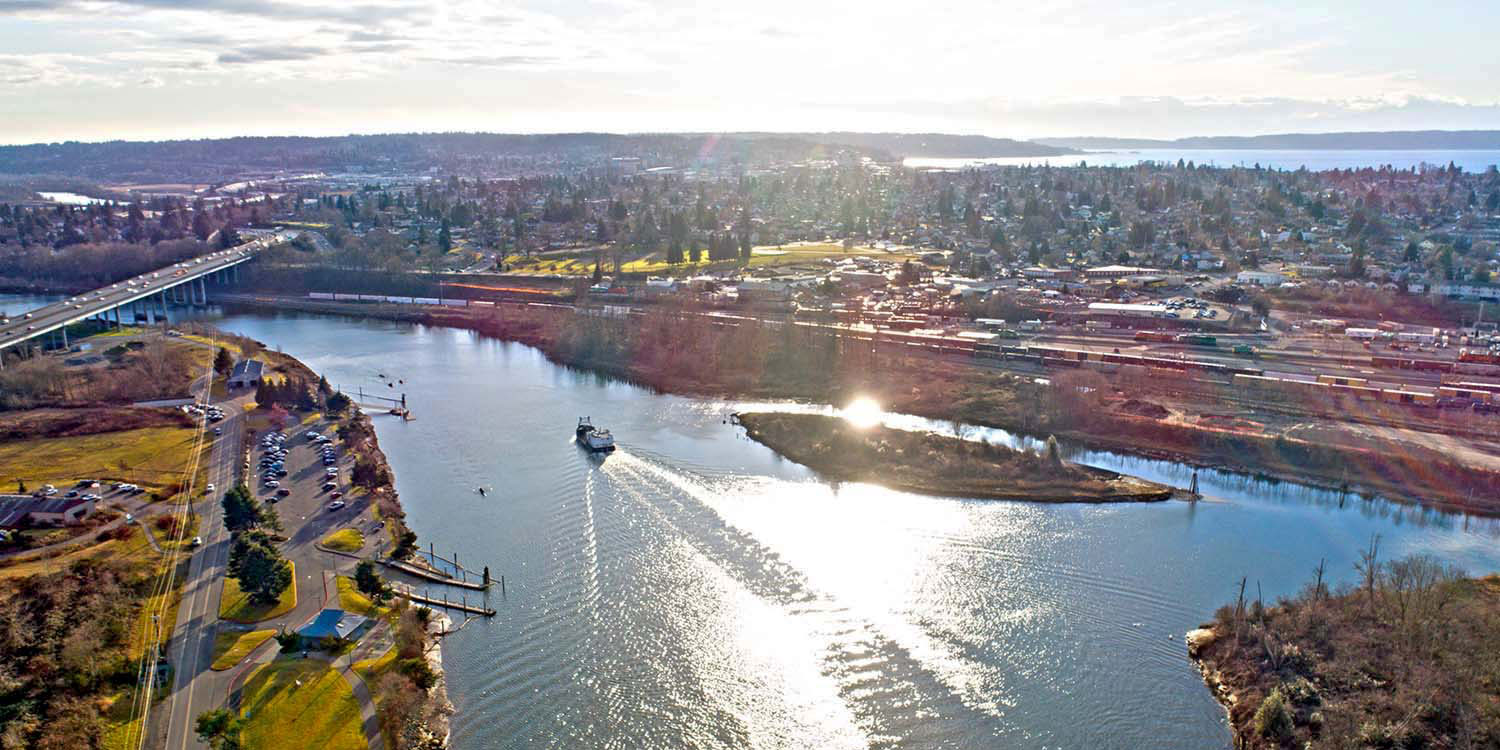Getting around Everett with Community Transit

Community Transit is here to get you where you want to go. We are proud to be a part of the Everett community — we live here, ride here, and drive here. Wherever you need to go in Everett, feel good about how you get there.
About Everett
Transit options in Everett
Sound Transit, Everett Transit, and Community Transit offer public transit options in Everett. Community Transit provides its bus rapid transit system, Swift, with two lines that travel through the city: the Blue Line from Downtown Everett to Shoreline via State Route 99; and the Green Line, which connects the Boeing plant to Mill Creek and northern Bothell.
Everett Station is a multimodal train and bus station that is served by its three major public transit providers including the Sounder Commuter Train. Everett Station is also served by intercity buses from Greyhound Lines, BoltBus, and Northwestern Trailways, which connect Everett to cities in the Pacific Northwest.
Sound Transit plans to extend its Link light rail service to Downtown Everett in 2036, as part of the Sound Transit 3 plan passed by voters in 2016.
Everett has more than 40 parks, with Forest Park serving as the largest. Many of these parks offer hiking, biking, and walking trails. The city also provides a seasonal ferry giving access to Jetty Island from its waterfront. Everett was connected with Seattle by an interurban railway from 1910 to 1939, with the right-of-way now serving as the Interurban Trail for bikers and pedestrians.
Regional destinations in Everett
Everett is the largest city in Snohomish County, Washington and the seventh-largest in the state by population. Everett's airport, Paine Field, serves as a major regional destination for travelers.
Everett Community College and Washington State University Everett, City University, Everest College, Embry–Riddle Aeronautical University, and Columbia College at Naval Station Everett are just some of the higher education options and campuses in the area.
Major employers in the area include Boeing, Providence Medical Center, Naval Station Everett, The Everett Clinic, Everett School District, Amazon, FedEx, the Everett Mall, Fluke Corporation (Fortive), and more.


